|
Alkotóként folyamatosan döntések előtt állunk. Folyamatosan kérdések merülnek fel bennünk, és nekünk az a dolgunk, hogy ezekre egy ponton választ adjunk: kikkel dolgozzunk, hogy kezdődjön a darab, hogy végződjön, a kutató folyamatból mit tartsunk meg és mit kukázzunk ki, mi legyen a jelmez, legyen-e díszlet, használjunk-e kelléket, hol adjuk elő, kiket szólítsunk meg...
Állítólag a művészeti iskolákban majd megtanítanak arra, hogy hogyan hozzál meg ezekre a kérdésekre “jó” döntéseket. Állítólag. De szerintem ez baromság. Én nem gondolom, hogy a művészetben lennének “jó” vagy “rossz” döntések. Egyszerűen csak döntések vannak, amikbe alkotóként beleállunk és kész. Ezeknek a döntéseknek egy részét tudatosan fogjuk meghozni, diktál majd a "józan ész", a logika meg a racionalitás, a kontextus, a rendelkezésre álló forrás, ilyenek. De lesz egy része, amiket csak úgy meghozunk, nem igazán tudjuk miből, miért. Van, aki ezt tehetségnek hívja, van, aki megérzésnek, intuíciónak, más tudatalattinak. Lényeg, hogy az alkotófolyamat során meg fogsz hozni döntéseket, néha fogalmad sincs miért. A nyugat-európai kortárs művészeti kánon arra szocializál, hogy a tudatalattiból meghozott döntéseknek is tudatosnak kell lenniük. Ezért elkezdesz koncepciót “gyártani”, próbálsz ráhúzni racionalitást arra, ami pont arról szól, hogy nem az. Próbálsz logikát vinni abba, ami nem logikus. Próbálsz érveket csinálni az érzelmekből. Magyarázatot találni arra, amit nem kell megmagyarázni, mert talán nem is lehet. A nyugat-európai kortárs művészeti kánon arra szocializál, hogy egy művész minden kérdésre tudjon válaszolni a munkájával kapcsolatban. A kánon szerint olyan nincs, hogy "nem tudom". Mintha bizalomra és önbizalomra csak akkor lennél jogosult, ha bármilyen felmerülő kérdésre konkrét válasszal tudsz szolgálni, kész a meggyőző "pitch", tisztán, érthetően és logikusan tudsz beszélni arról, amit állítólag egészében átlátsz. A művészettörténet is erre a mítoszra épít, hogy alkotásokat ánblokk meg lehet magyarázni. Ez egy hazugság. A munkáink egy része vakfolt, egy fekete lyuk, amit rengeteg ellentmondás, kétely, irracionalitás övez, és pont ettől érzékeny, pont ettől törékeny, hogy helyenként ködös és megmagyarázhatatlan. A konceptuális művészeti irány és a jelenlegi retorika-alapú prezentációs diszpozitív arra sarkallja a művészeket, hogy azt hazudják minden alkotói gesztus mögött van racionális magyarázat. Pedig tudjuk jól: nincs. A konceptuális művészet megúszós művészet: elbújsz elméletek mögé, távolságot hozol létre, nem közeledsz. Se magadhoz, se a közönségedhez. Kívül maradsz, úgy csinálsz, mintha. Azért absztrahálsz, mert nem mersz megnyílni, azért operálsz a társadalomnak csak egy privilégizált szegmense által ismert nyelvi és esztétikai kódrendszerrel, mert a nyugat-európai kortárs művészeti kánon jelenleg teljesen érzéketlen az érzelmekből fakadó esetlegességre. Jogos, hogy nem mersz megnyílni, ki merne ebben az ellenséges környezetben? Érthető, hogy nem vállalod fel az érzelmeidet, ki vállalná fel ebben az elnyomó, itélkező és kirekesztő kortárs művészeti mezőben? Ahhoz hogy lépjünk, hogy a kamu konceptuális művészetből egy érzékeny és bizonytalan művészet felé közeledjünk, el kell kezdenünk nyitni, elfogadni és bízni. Az Engedetlenség Leányiskolája ehhez kíván bátor és biztonságos közeget teremteni.
0 Comments
"PROVOCATION IS NOT THE POINT"
Interpretations of "experimental" and "radical" vary widely. For us, it's about being genuine and personal. Others see it differently, and we embrace the diversity and sometimes contradictions in responses. However, it's essential to emphasize that there are no set expectations here. Your work doesn't need to be provocative, contemporary, or feminist. Nothing is obligatory! We're interested in your voice, your perspective, your world, your aesthetics, your interpretation. Something authentic that isn't driven by trends or forced provocation. "NO AWKWARD, NO SHIT" It's a truth rarely spoken publicly, but nearly everyone secretly agrees: contemporary art can be mind-numbingly dull. Why? Because it often lacks risk and stakes. Courage requires a supportive environment, one where you feel safe to explore personal issues, experiment freely, and defy aesthetic and conceptual norms. Unfortunately, much of what we see today is sterile, conformist, and uninspiring—a symptom of an arts education system that prioritizes uniformity over diversity. Our Performance Platform aims to be different—a space free from expectations or judgment, where anything goes, and everyone can be themselves. "EXPERIMENTATION" True experimentation is diving into the unknown. It's starting something without a clue where it'll lead, using tools you're not familiar with, and embracing the unpredictable. You're not seeking beauty or effectiveness; you're venturing into uncharted territory. It's risky, filled with failures, but also with wonder and surprises. For our Experimental & Radical Performance Platform, bring your doubts, uncertainties, and creative crises. Embrace the journey, and clarity will follow! "CONTEMPORARY FORMALISM" "Contemporary" isn't a rulebook—it's about breaking free from expectations. Don't conform to trends or seek validation. Trust yourself, your instincts, and your vision. Don't let anyone put you in a box or dictate your art. Bring YOUR art to this Platform—raw, honest, and unapologetically you. It's not about concepts or academic jargon—it's about YOU and your expression. That's what truly matters. "SUSTAINABLE ART" In an industry plagued by overproduction and overconsumption, our profession mirrors the excesses of any market. Projects proliferate due to systems prioritizing their creation over presentation and dissemination. Yet, there's a scarcity of exhibition space, audiences, and attention. Our Performance Platform aims to tackle these issues head-on: How can we rethink the intense production characteristic of the arts sector? Is "sustainable art" achievable, and what defines sustainability in a project? How can the performing arts become more conscious and responsible, and who should drive this change? What strategies are needed to rebalance the skewed relationship between supply and demand, and how can we reach a 'market equilibrium'? "WORKING TOGETHER INSTEAD OF COMPETING" We're not adversaries; we're allies! Collaboration, community, solidarity—these are our guiding principles. The world and our profession can be harsh, but they're also incredibly rewarding. Believe in yourself and your work; don't let others dim your enthusiasm or control your path. Stay true to yourself, and don't get swayed by distractions. With this Experimental and Radical Performance Platform, we emphasize listening, supporting, and uplifting each other. Let's unite, stick together, and build a strong community! “NEM A PROVOKÁCIÓ A LÉNYEG”
Nyilván mindenki úgy értelmezi azt, hogy “meredek” és “radikális”, ahogy szeretné. Mi például úgy, hogy őszinte és személyes. Más másként, és mi pont a válaszok sokszínűségére, olykor ellentmondásaira vagyunk kíváncsiak. Ugyanakkor szeretnénk hangsúlyozni, hogy ez nem az a tér, ahol bárminek is bármilyennek kell lennie. Vagyis nem KELL, hogy a cuccod provokatív legyen, nem KELL, hogy kortárs legyen, nem KELL, hogy feminista legyen. Semmi sem kötelező! Minket a Te hangod érdekel, a Te nézőpontod, világod, esztétikád, értelmezésed. Ami nem követ le trendet, és nem kényszerből provokál. “NINCS CIKI, NINCS SZAR” Nyilvánosan nem mondjuk ki, csak haveroknak előadás után, de igazából majdnem mindenki ugyanazt gondolja: a kortárs művészet baromi unalmas. Elsősorban azért, mert nincs a dolgoknak tétje, langyos az egész, sehol semmi kockázat. És logikus, hiszen a kockázat vállaláshoz bátorság kell, a bátorsághoz pedig támogatás, egy olyan nyitott és elfogadó közeg, ahol tudom, hogy nyugodtan megnyílhatok, beszélhetek személyes témákról, szabadon kísérletezhetek, szabadon nyúlhatok olyan eszközökhöz, formákhoz, amik a jelenlegi esztétikai, konceptuális és retorikai trendeknek és elvárásoknak nem felelnek meg, és hogy ez nem lesz baj, sőt! Az hogy steril, visszafogott, konformista, amolyan jó kislányosan stréberes a produkciók többsége egyébként egyáltalán nem meglepő egy olyan jelenlegi művészetoktatási rendszer mellett, ami uniformizál ahelyett hogy az egyéniség kibontakozását támogatná. Ami azt nézi, hogy miben vagy szar, ahelyett, hogy arra fókuszálna, hogy mi a te utad, nyelved, vágyad, álmod… A mi Performansz Paltformunk egy olyan esemény akar lenni, ahol nincs jó és rossz előadás, nincs elvárás, nincs ítélkezés… Ahova bármit el lehet hozni, ahol bármit ki lehet próbálni, bármit el lehet mesélni, meg lehet osztani, ki lehet mondani. Röviden: ahol bátran saját magad lehetsz! “KÍSÉRLETEZÉS” Egy valódi experimentális munkafolyamat az olyan, hogy elkezdesz valamit, de fogalmad sincs mi lesz belőle. Olyan eszközökhöz is nyúlsz, amikhez amúgy nem szoktál. Kipróbálsz dolgokat, amiket egyáltalán nem tudsz kontrollálni, mert vagy nincs rutinod a médiumban, vagy nem tudod, hogy a dolog hogy fog elsülni, miből mi lesz. Az experimentális munkafolyamat bevállalós, nem azt keresed, hogy mi néz ki jól, mi a szép, hogy mi a hatékony, nem reprodukálod azt, amit tudsz, ami bejáratott, hanem ismeretlen vizekre evezel. Rizikó, elveszettség érzése, rengeteg kudarc, de csodálkozás, ráébredés, meglepetések sora, valami ilyesmi az experimentális munkafolyamat! Erre a Performansz Platformra bátran hozd el azokat a kételyeket, bizonytalanságokat, hezitálásokat, görcsöket, blokkokat és alkotói válságokat, amik egy experimentális munkafolyamat teljesen természetes velejárói. Meglátod, utána sokkal-sokkal tisztább lesz minden! “KORTÁRS FORMALIZMUS” A “kortárs” az nem egy olyan dolog, aminek vannak kőbe vésett szabályai, és igenis bátran neki lehet menni azoknak a szellemi dinoszauruszoknak, akik elhitetik veled azt, hogy van egy recept ahhoz, hogy jó kortárs művész legyél és jó kortárs művészetet csinálj. Felejtsd el a trendeket, ne akarj “teljesíteni”, ne várd a szakmai elismerést, ne számítson, hogy ki mit gondol majd! Bízz magadban, a művészetekben, kövesd a saját utad, add meg magadnak azt az alkotói szabadságot, amit sokan el akarnak venni tőled! Ne hagyd, hogy befolyásoljanak, hogy dobozba zárjanak, hogy emberek, akik ki tudja miért felhatalmazva érzik magukat ahhoz, hogy ítélkezzenek a művészeted felett elvegyék az önbizalmad, a hited! Erre a Performansz Platformra ne “kortárs” művészetet hozz, hanem azt a művészetet, ami benned van, ami te vagy! Az őszinte hangodra vagyunk kíváncsiak, rád, a te gondolataidra, világodra, vágyaidra. És senki nem fogja megkérdezni tőled, hogy “mi a koncept” vagy “mit akarsz mondani” vagy “olvastad-e amúgy Butler-t”, mert rohadtul nem ez számít. Egyedül te számítasz! “FENNTARTHATÓ MŰVÉSZET” Ugyanúgy jellemző a túltermelés és a túlfogyasztás a szakmánkra, mint bármelyik másik piacra: rengeteg alkotás készül, részben mert a jelenlegi pályázati és ösztöndíj rendszerek, rezidenciák inkább a projektek megvalósítását, mintsem bemutatását, terjesztését támogatják. Konkrétan túl sok új alkotás készül, a játszóhely, a kiállítási lehetőség és a közönség viszont ehhez képest kevés, az igény és a figyelem pedig elaprózódott. Célunk, hogy ez a Performansz Platform a következő kérdéseket is felvesse: Vajon a művészeti szektorra jellemző intenzív termelést hogyan lehetne újragondolni? Van-e “fenntartható művészet”, illetve mitől lesz egy projekt fenntartható? Mit kellene tenni ahhoz, hogy az előadóművészet tudatos és felelősségteljes lehessen, és kinek milyen szerepe lenne a változtatásban? Milyen új stratégiákkal lehetne helyrehozni az előadóművészetre is jellemző kereslet és kínálat közötti eltorzult viszonyt, milyen változások szükségesek a “piaci egyensúly” megtalálásához? “VERSENGÉS HELYETT ÖSSZEFOGÁST” Nem vagyunk egymás ellenségei, konkurenciája, sőt! Együttműködés, közösség, szolidaritás. Egymás segítése, felkarolása, támogatása, bátorítása. Ne add fel, ez egy kegyetlen világ és egy borzasztó nehéz szakma, de gyönyörű! Bízz magadban, a munkádban, ne add fel a kezdeti lelkesedésed, ne engedd, hogy mások irányítsanak, ne dőlj be, ne hagyd, hogy baromságokkal elkápráztassanak, hogy elvegyék az önbizalmad. Kövesd a saját utad, legyél önmagad, ezt csak úgy lehet! Ezzel a Performansz Platformmal azt is szeretnénk hangsúlyozni, hogy figyeljünk egymásra, támogassuk egymást, bátorítsuk egymást, segítsük egymást! Hogy fogjunk össze, tartsunk össze, legyünk közösség! Living, creating, thinking, and acting in community is increasingly popular today, especially in the artistic and activist worlds. However, adopting a critical approach and questioning "received ideas" and apparent truths invites us to delve deeper into this rhetoric. Does joining a community mean sacrificing individual will for collective will? Is it about hiding the “I” behind the “we”? What happens to personal voice and identity? Does it mean fading into the group, minimizing oneself in relation to others, dissolving into the collective, and always seeking compromises? Does this resonate with you? Exploring community and gender: What is the relationship between community and gender dynamics? How do traditional gender roles and biases play out in communal settings? Preventing societal dysfunction in communities: How can we ensure that the dysfunctions of contemporary society are not reproduced at the community level? This includes considering values, organizational structures, and ethical standards. Community as an escape: Is belonging to a community a way to escape individual decision-making, responsibility, solitude, and the challenges of adulthood? How do we balance communal support with personal growth? Communitarianism and emotional dependency: What is the relationship between communitarianism and emotional dependency? Does reliance on a community hinder emotional independence and personal development? Leadership and communitarianism: How does being in a community impact the emergence of leaders, particularly women leaders? Could communitarianism inadvertently suppress the development of a new iconography of female leadership? Reinventing individualism: Instead of solely focusing on communitarianism, shouldn't we also consider reinventing individualism outside the capitalist framework? How can we cultivate a form of individualism that promotes personal freedom and creativity while still valuing community? These questions urge us to critically examine the true essence and implications of living and creating within a community. By exploring these complexities, we can strive for a balance that honors both collective and individual needs. Let’s engage in this dialogue and uncover the deeper layers of what it means to be part of a community. What does community mean to you? Many artists are paralyzed by the fear of not succeeding, which prevents them from even trying. This fear can be deeply ingrained, stemming from early life experiences where failure was met with harsh criticism or punishment. Over time, this can create a mental block that convinces you that failure is a reflection of your worth as an artist. The fear of failure can also be amplified by the competitive nature of the art world, where rejection is common and success can feel elusive.
At the School of Disobedience, we create a safe and supportive environment where we encourage experimentation and risk-taking, helping you to redefine failure as a stepping stone to success—whatever success means to you. It's crucial to see failure as an opportunity for growth and learning. Failures don't define you; how you respond does! Embrace the idea that each failure brings you closer to your true potential, providing valuable lessons that help you refine your craft and strengthen your resilience. Nem az bosszant, hogy a “legfontosabb” feminista esszék nincsenek lefordítva, hanem az, hogy azokat az esszéket, amikről azt gondoljuk, hogy hazai viszonylatban a “legfontosabbak”, külföldről vásároljuk.
Én a lokális feminizmust támogatom, fordító klub helyett esszé író kört, ahol magyarul gondolkodunk a saját nyelvünkön a saját problémáinkon. Nem fordítani akarok, nem más kontextusban, más kultúrkörben, már történelmi háttérben megfogalmazott kész gondolatokat importálni. Magyar feminizmust akarok magyarul. Mert képesek vagyunk rá! *** Borzasztóan károsnak tartom a fordító klub koncepcióját a mi kelet-európai kontextusunkban, ahol edukatív környezetben kicsi korunk óta azt tanuljuk, hogy nyugaton jobban tudják, hogy ami nyugatról jön, az az “igazi”, az jobb, értékesebb, fontosabb. Ez egy óriási “unlearning” lecke, megtanulni értékelni a hazait, nem alámenni, nem behódolni, nem lemásolni, nem bambán behozni külföldről a dolgokat, főleg egy olyan aktuálpolitikai helyzetben, amiben szinte minden, ami magyar vonatkozású, egyből megkapja, hogy "nacionalista". Én ezen gondolkodnék veletek szívesen, az egészséges nemzeti öntudaton. Hogy merjünk hozzányúlni a saját nemzeti értékeinkhez, nyelvünkhöz, kulturális örökségünkhöz lealacsonyítás, ítélkezés és bűntudat nélkül. Hogy bízzunk magunkban, merjük bátran nyomni a "Made in Hungary"-t. Gondolatok terén is. A successful workshop is not necessarily one where we laughed a lot, where the atmosphere was pleasant, where human relations were easy, and where we had a good time. For me, a successful workshop is a useful workshop—a space where we learned, unlearned, and relearned things, regardless of the circumstances.
There is no hierarchy between theoretical, practical, technical, or methodological workshops, just as there is no hierarchy between lexical knowledge and personal experience. They are simply different entry points, each valuable in its own way. The question is not what you learn in a workshop, but how you learn it. The role of a teacher (Unlearning Facilitator) is not only to transmit knowledge, tools, experiences, but also to invent a framework, to choreograph a context that encourages individual initiative, responsibility, and independence. A useful workshop is one where we make progress compared to ourselves, not others. It’s a place where we are encouraged and respected, where we can move forward and grow at our own pace. It’s important to remain open to the idea that sometimes the learning and unlearning will come from unexpected sources, and the lesson may not be where you anticipate it to be. What is a teacher? Here at the School of Disobedience, we call teachers "Unlearning Facilitators." They are not your friends or parents, and you don't have to like them either. "Unlearning Facilitators" are not here to please you; they are here to facilitate the process of growth and transformation. This process can take many forms—a tool, a method, or an experience—that helps you progress in your artistic or personal journey.
The key question is not only what an "Unlearning Facilitator" teaches, but also how they teach. Their role goes beyond imparting knowledge and experiences; they are tasked with creating a climate of trust that encourages both learning and unlearning. They raise questions and challenge what seems obvious, fostering an environment where true growth can occur. The idea of the convergence of struggles ("convergence des luttes") sounds appealing, but in reality, it often serves to dissuade, exhaust, and dilute small-scale grassroots initiatives. This stems from the misguided belief that success is tied to size. But what if success had nothing to do with scale?
Building a coalition in the pseudo-independent, highly competitive, oppressive, and toxic local activist milieu often means being swallowed by an opaque machine with unfocused ambitions. This process can lead to abandoning original objectives for a supposedly nobler, transversal goal. But is there really such a thing as a noble or nobler cause? Are causes subordinate to one another? Is one goal more important than another? According to whom? Political activism is not about subsets or hierarchies. There are no "sub-causes" or "main causes," no cause-pyramid or cause-hierarchy. Such notions are nonsensical. Activism isn’t a pie where other initiatives reduce your impact. You don’t have to unite just because someone else is involved. More people together doesn't necessarily mean increased effectiveness. Political activism isn’t an entertainment industry; it’s not about ticket sales. The number of participants doesn't inherently determine success. Joining a coalition often means scaling up. While you may seem louder on the outside, internally, you may start to feel an echoing emptiness as the space becomes increasingly hollow. Have we sacrificed our essence to unite when we were already united in spirit? We aimed to grow but have shrunk in essence. There is always a critical mass in political activism. The language around coalition-building, reminiscent of capitalist logic, pushes small organizations and grassroots initiatives to grow, develop, and expand. Yet, it’s clear from the outset that if a small organization outgrows itself, it will sooner or later lose its voice, its way, and its heart. Given this, is the push for coalition not a deliberate strategy to cannibalize, a demagogic weapon of internal destruction? We don't need to grow to exist. We don't need to unite to have a stronger voice. We don't need to be loud to be visible. We don't need to be visible to make things happen. The two most effective weapons in political activism today are free and legal: invisibility and unpredictability, both privileges of small organizations. This may be why there’s such a cult of coalitions and why cheap tricks are used to absorb and then destroy small organizations. Small organizations are dangerous when they remain small, but when they grow, they only become loud. The soul is lost in growth. A küzdelmek egyesülése (“convergence des luttes") elsőre jó ötletnek tűnhet, de a valóságban ez a kis méretű kezdeményezések felhígítását majd feloszlását szolgáló bedaráló stratégia, ami ha belegondolsz elsősorban arra a nagyon buta tévhitre épül, hogy valami akkor sikeres, ha nagy. Mert mi van, ha nem?
Koalícióra lépni a hazai versenyszellemű ál-független egymást elnyomó és kizsigerelő aktivista közegben annyit jelent, hogy lassacskán bekebelez egy átláthatatlan, homályos gépezet, egy kamu címszavakkal dobálózó steril maszlag része leszel fókuszálatlan törekvésekkel, ahol feladod az eredeti célkitűzéseidet egy állítólagosan nemesebb transzverzális célért. Mert ez verseny? És van nemes és nemesebb ügy? És ezek egymás alá-fölé vannak rendelve? Az egyik cél fontosabb, mint a másik? Mitől? Ki szerint? A politikai aktivizmus nem részhalmazok kérdése, nem vagy automatikusan egy ügy “részese”, nincsenek al-ügyek meg fő-ügyek, nincs ügy-piramis meg ügy-hierarchia, ez hülyeség. A politikai aktivizmus nem torta, nem jut neked egy ügyből kevesebb csak azért mert más is foglalkozik vele. Csak azért, mert más is foglalkozik vele, nem biztos, hogy egyesülni kell, egyáltalán nem biztos, hogy együtt hatékonyabbak lesztek. A politikai aktivizmus nem jegyáras szórakoztatóipar, itt nem a résztvevők száma a lényeg. Tök mindegy, hányan vagytok, de tényleg. Koalícióra lépni annyi, mint nőni, léptéket váltani. Lehet, hogy kívülről hangosabbnak tüntök majd, de belülről egyszer csak elkezdesz kongani: apránként visszhangozni kezd az egyre csak üresedő belső tér... Feladtuk önmagunkat, hogy egyesüljünk, mikor mi már egyszer egyesültünk?! Feladtuk önmagunkat, hogy növekedjünk, csak hogy a lényeget tekintve nem nőttünk, hanem zsugorodtunk. A politikai aktivizmusban mindig van egy kritikus méret. A koalíciót körülölelő kapitalista logikára emlékeztető szemantikai mező növekedésre, fejlődésre, terjeszkedésre buzdítja a kis szervezeteket, alulról jövő kezdeményezéseket, miközben az első perctől egyértelmű, hogy ha egy kis szervezet túlnő saját magán, előbb-utóbb el fogja veszíteni saját hangját, útját, létjogosultságát. Mivel ez kezdettől fogva világos, felmerül a kérdés, hogy vajon a koalícióra való serkentés nem szándékos kannibalizáció-e, vagyis a belülről történő megsemmisítés demagóg retorikai fegyvere? Nem muszáj növekednünk ahhoz, hogy létezzünk. Nem muszáj összefognunk ahhoz, hogy legyen hangunk. Nem muszáj hangoskodnunk ahhoz, hogy észrevegyenek. Nem muszáj láthatónak lennünk ahhoz, hogy változást eredményezzünk. Politikai aktivizmusban jelenleg a két leghatékonyabb fegyver ingyenes és legális: a láthatatlanság meg a kiszámíthatatlanság, mindkettő a kis méretű szervezetek kiváltsága. Talán ez az oka ennek az egész manipulatív koalíció-kultusznak, talán ezért próbálják olcsó trükkökkel beolvasztani, majd megsemmisíteni a kis szervezeteket: mert kicsiként még veszélyesek, viszont ha megnőnek már csak hangjuk van. A lélek elvész a növekedésben. |
Author"Born in Budapest (Hungary) in 1983, I graduated from the ENSAPC Art School (France) in 2016. As an artist, researcher, and community activist, I harness the power of art for connection, education, and activism. My practice spans various mediums, including image, object, and performance. I create full-length visual and dance performances, short-format pieces, and immersive experiences, while also creating spaces for non-formal education outside of traditional academic heritage. Over the past two decades, I've founded the School of Disobedience, established my own performance art company (Gray Box), and launched the annual Wildflowers Festival. I embrace everything unusual, unexpected, and nonconformist. I am not kind with assholes and have learned to forge my own path. I am here to guide you in thinking outside the box and achieving independence. To me, the real party is outside the confines of the established canon." Archives
July 2024
Categories
All
|
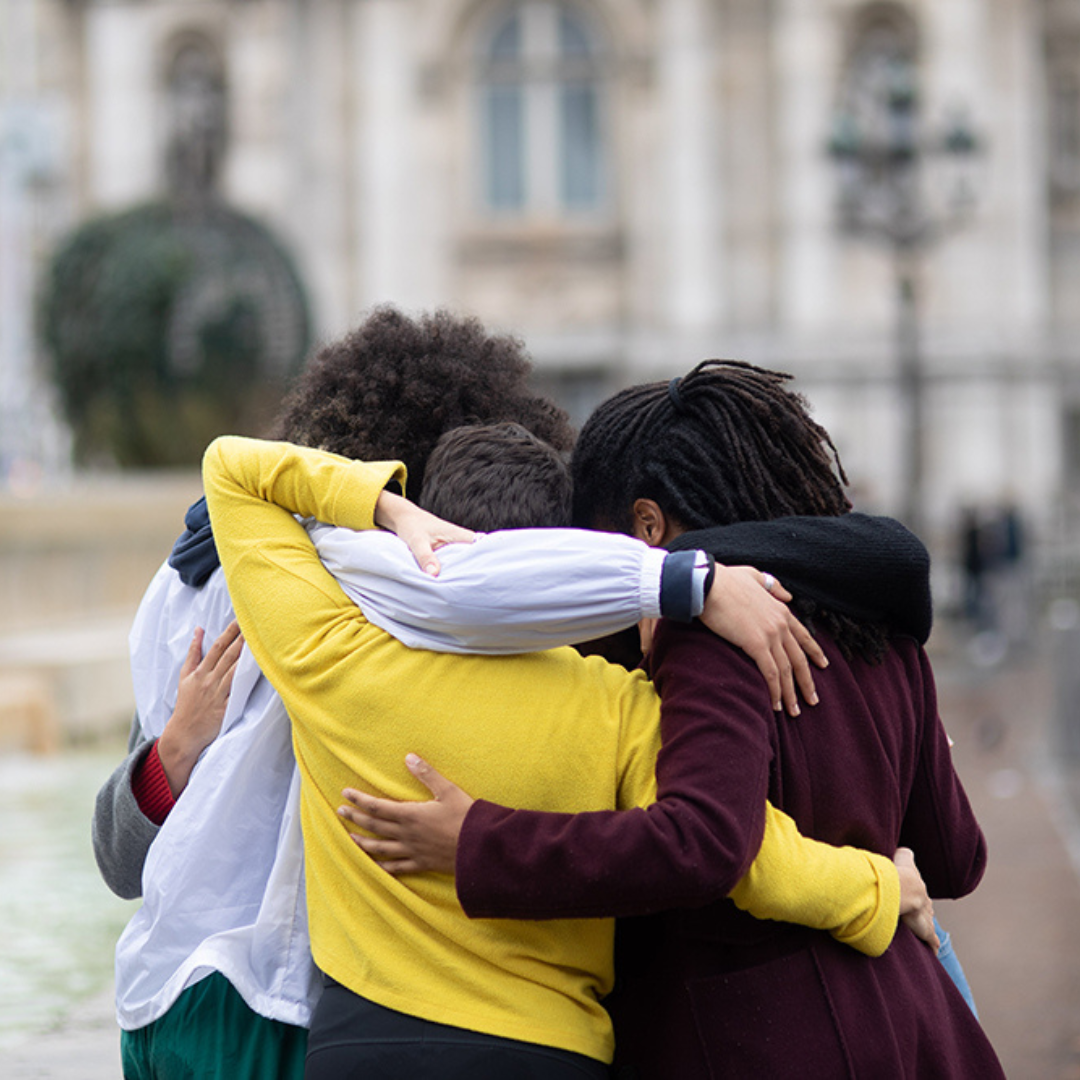
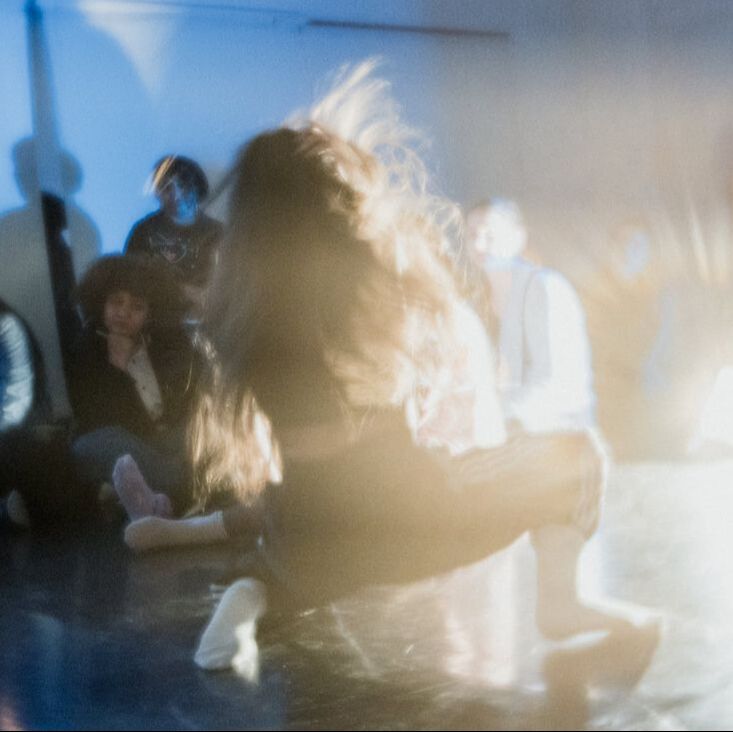
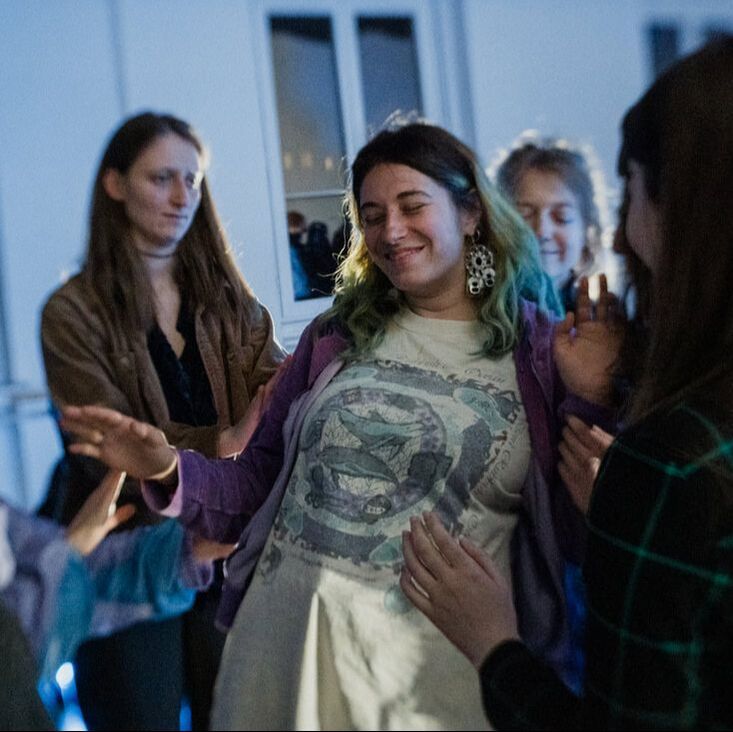
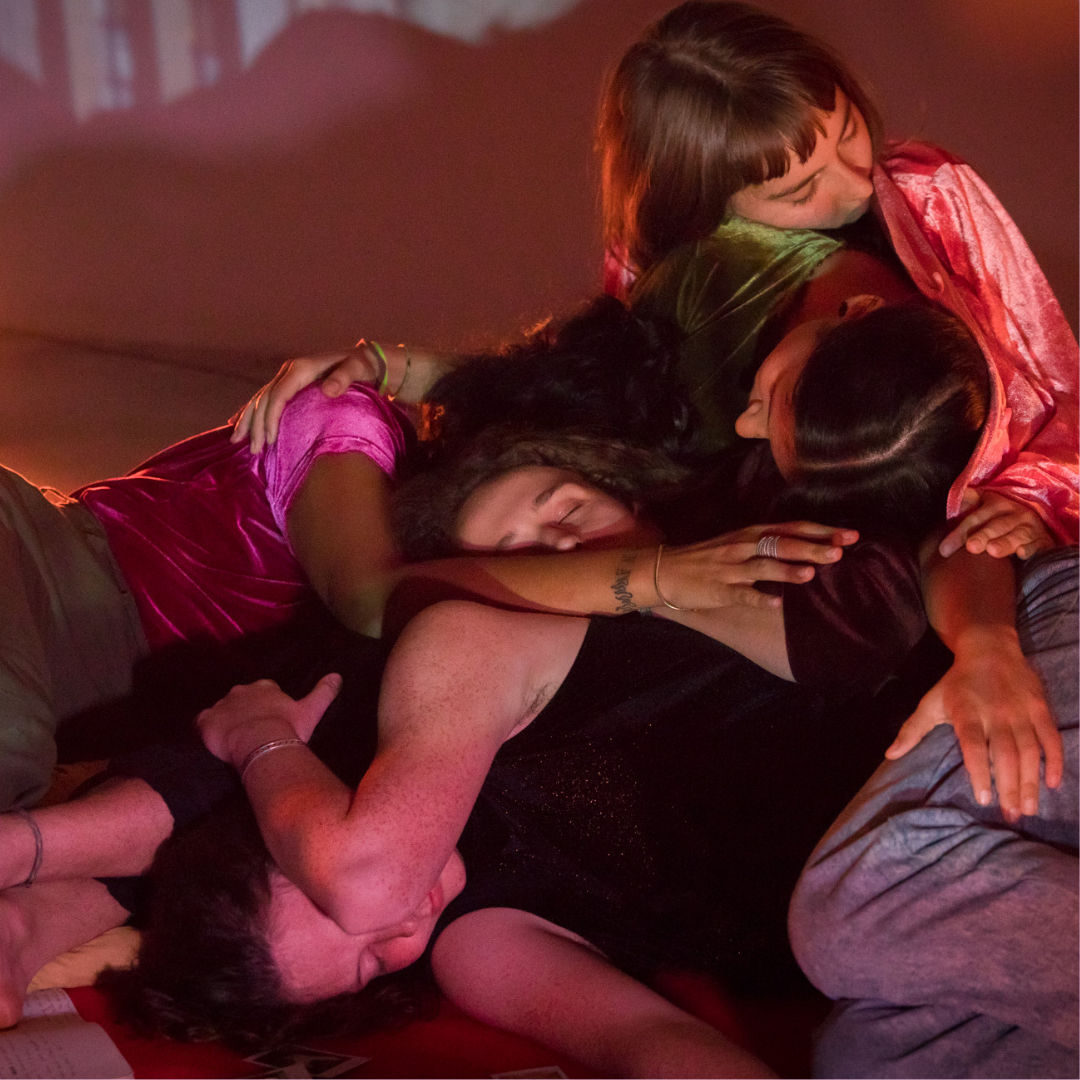
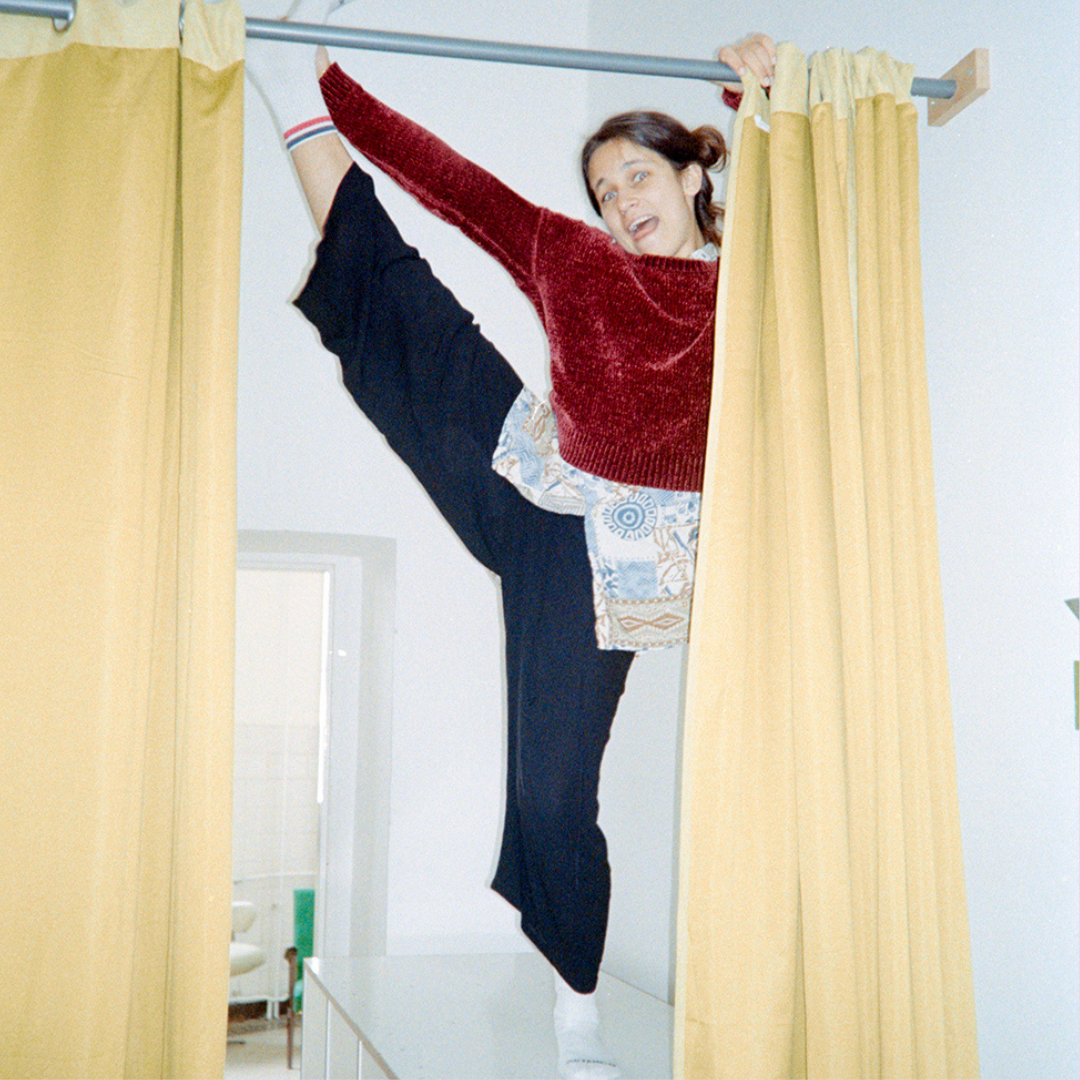


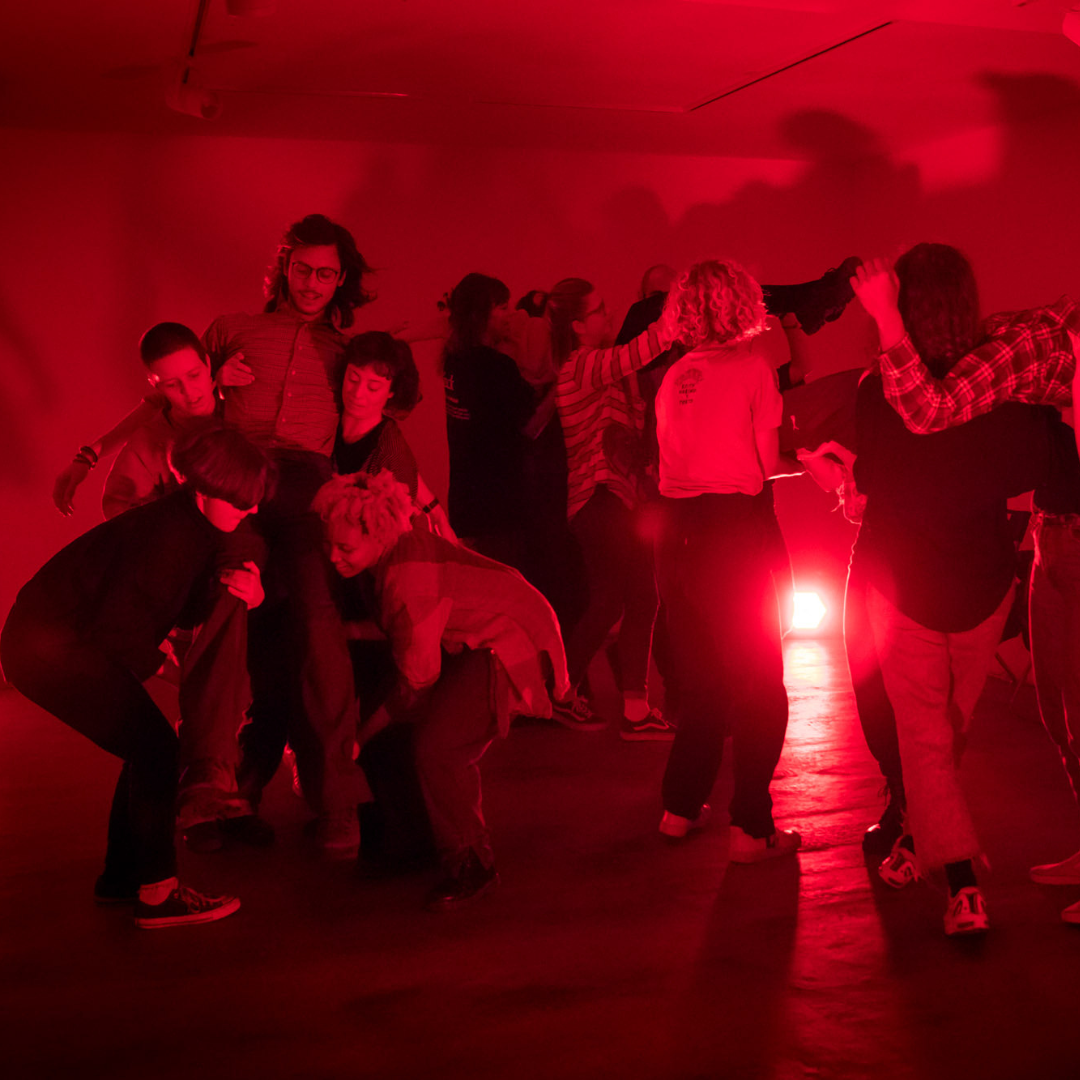
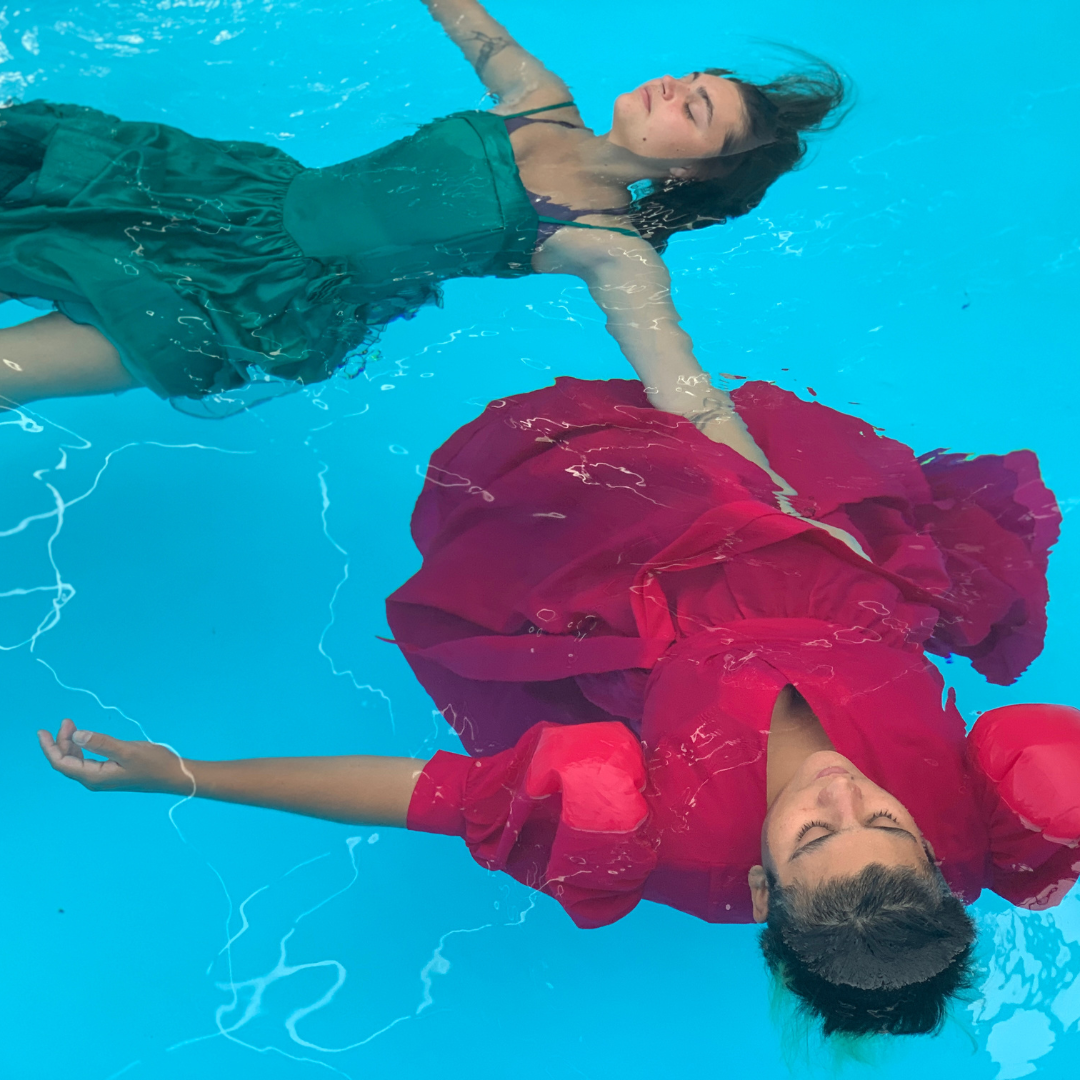

 RSS Feed
RSS Feed